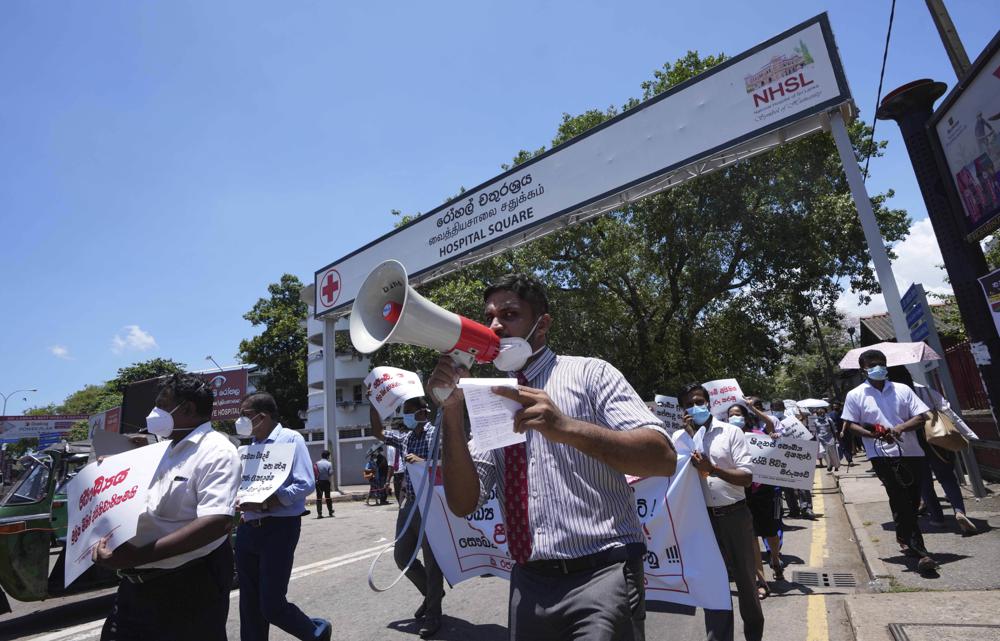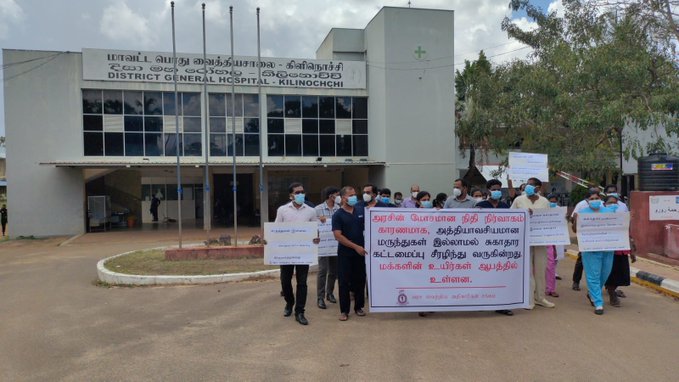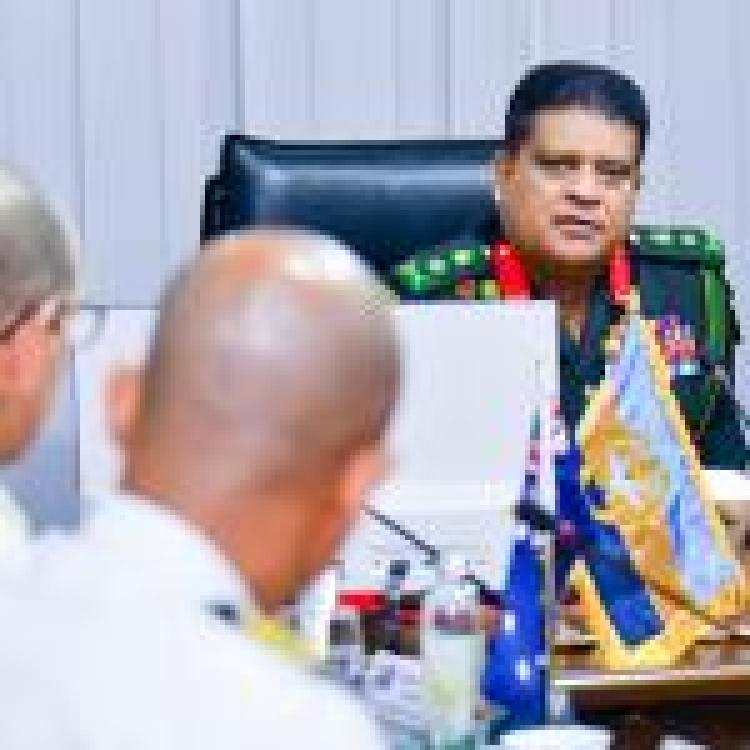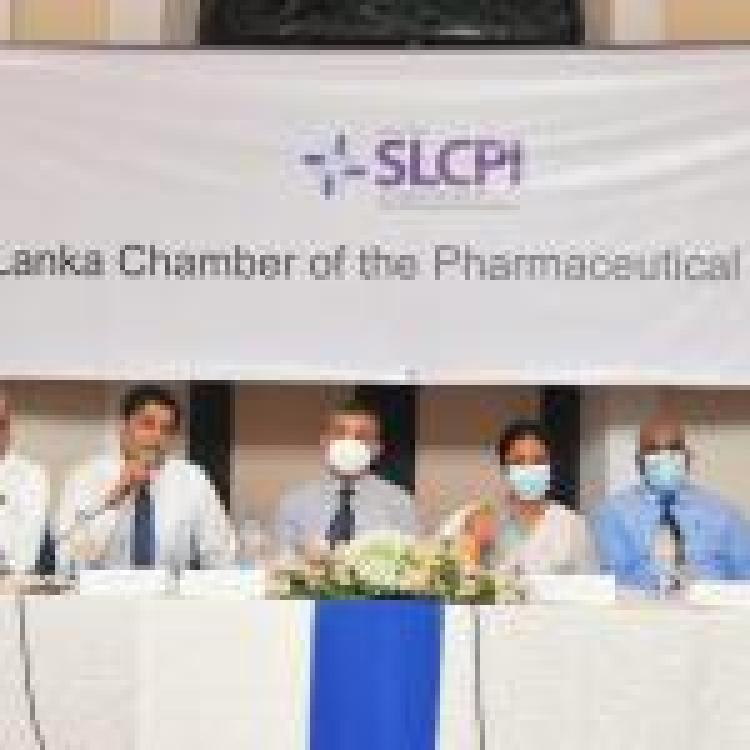The Government Medical Officers' Association (GMOA), one of Sri Lanka's most powerful trade unions, has declared a medical crisis as doctors and hospitals reported a widespread lack of medicine.
The GMOA met last week and released a statement declaring a medical emergency.
"The association leaders discussed the severe shortage of medical equipment and essential medicines in all government hospitals islandwide. The shortage of fuel and the recurrent power cuts has made it very difficult for hospitals to maintain patient care on a daily basis. The Ministry of Health and the Government have failed to make plans to prevent the imminent collapse of the health service, as the free health service maintained by the people is not considered a priority of the country," the statement read.
Over a dozen trade unions representing thousands of health workers also called for an island-wide protest demanding an end to state repression against anti-government protestors.
Medical staff at the Kilinochchi District General Hospital were unable to provide proper treatment to patients due to a shortage of medicines.
Last week medical students stormed the ministry of health in Colombo in protest over the shortage of drugs.
VIDEO: Students, doctors protest in Sri Lanka.
— AFP News Agency (@AFP) April 7, 2022
Medical students storm and occupy the health ministry in Sri Lanka's capital Colombo while doctors, nurses and health workers stage a protest against the shortage of drugs as a result of the nation's deepening economic crisis pic.twitter.com/A8fQiPjTAG
The GMOA accused the government of jeopardising Sri Lanka’s renowned universal healthcare system, which gives all citizens access to free state healthcare. “Both the government and health ministry have failed to prevent a complete breakdown of the medical system,” it said.
Healthcare across the island has been impacted by the current economic crisis. However, healthcare across the North-east has been chronically underfunded and increasingly militarised. The war crimes accused military have been running health clinics and dental clinics and taking over hospitals across the region. Hospitals across the northeast have consistently received support from the Tamil Diaspora to help source vital equipment.
Indika Rathanayaka , the North Western Convener of the GMOA, told reporters last Wednesday that the current stocks in most hospitals will last only two weeks.
“We saw this problem a month ago. Within another month time, if this does not get solved, we are going for a health crisis in the country as well,” Rathanayaka said.
Gotabhaya Ranasinghe, a cardiologist at the national hospital of Sri Lanka in Colombo speaking to the Guardian, said hospitals were running out of medicines, and many lives were at stake.
“There are important heart medications, medicines for blood pressure, heart attacks, all are running out. I have heard that many cancer drugs are also not available any more, so it is a very worrying situation,” he said.
“People can already visibly see the impact of the food crisis and the fuel crisis but the medical crisis is only just beginning. As a doctor it feels terrible to know that I can’t prescribe medicines and so a patient’s life is put in danger. I don’t think the politicians fully understand the impact.”
“People are struggling, they are out on the streets, but we are stuck in a terrible limbo and I can’t see a way out of it,” he added.
Reports have been circulating online of many hospitals running low on essential equipment.
Today we were asked hold this piece tight after removing the cannula from our toddler's hand. The commonly used small piece plaster is out of stock. This is in a large hospital in Colombo. Imagine the plight of regional hospitals. #Accountability#GoHomeGota #GoHomeRajapaksas pic.twitter.com/jv4CQQkHbi
— Night Watch LK (@NightWatchLk) April 7, 2022
I'm an onco surgeon working at teaching hospital Batticaloa. At the moment we are short of total parenteral nutrition which is needed for cancer patients who need to be nil by mouth for prolonged time.Kabivan is the brand name
— Ramprasad (@Ramprasad_onco) April 10, 2022
Sri Lanka’s lack of foreign currency reserves has had a devastating impact on the availability of medicine. More than 85% of pharmaceutical products in the country are imported, and these are paid for in US dollars. If dollars are not available then drugs cannot be bought. The Sri Lanka Chamber of Pharmaceutical Industry warned last month that 5% of drugs were out of stock and the problem was likely to worsen.
Read more at The Guardian and The Morning




